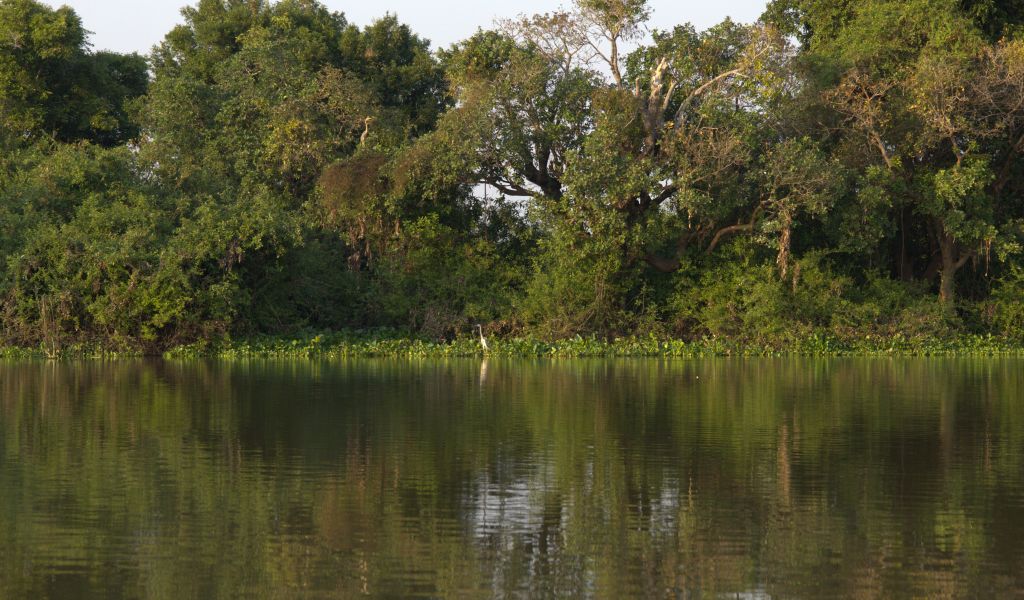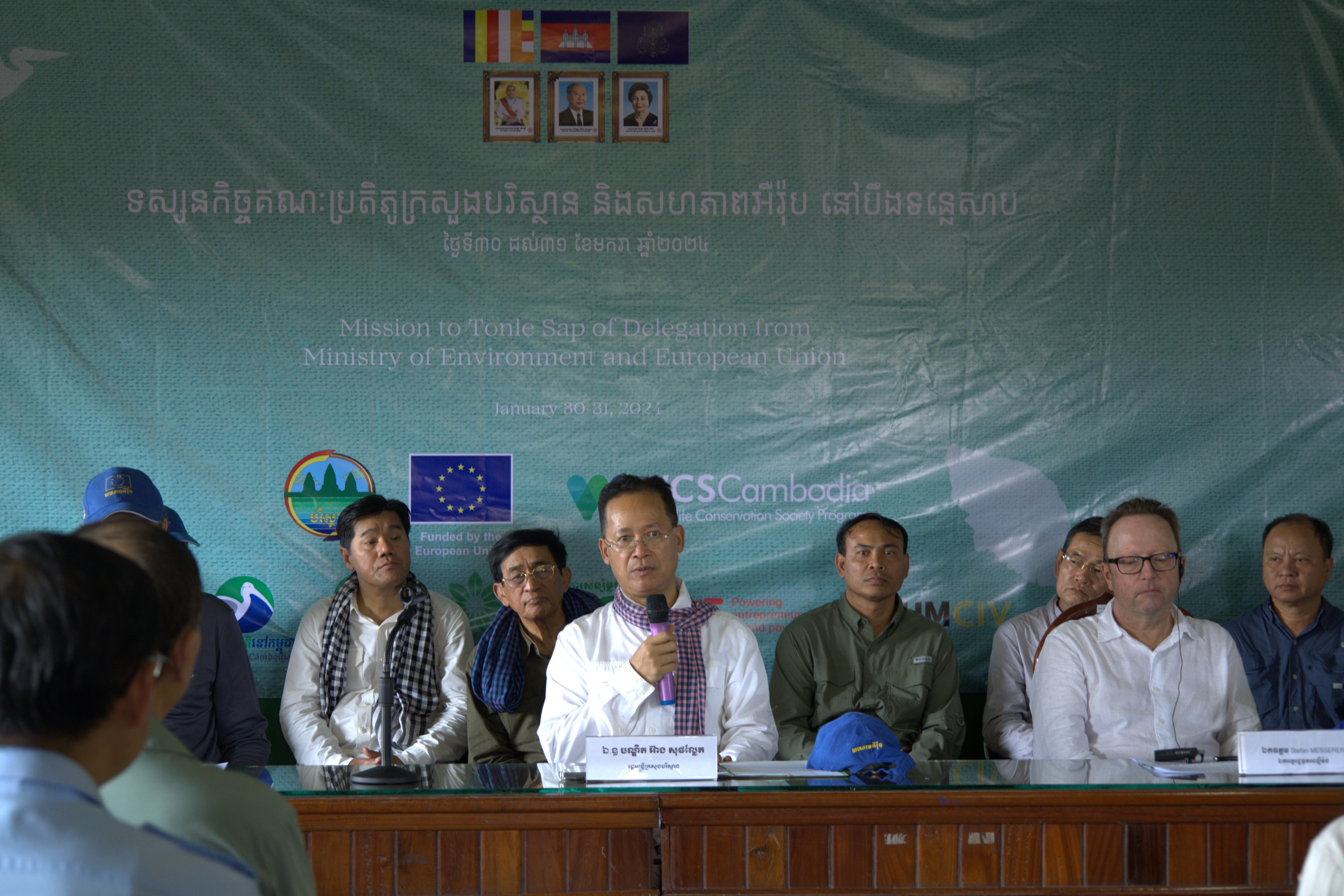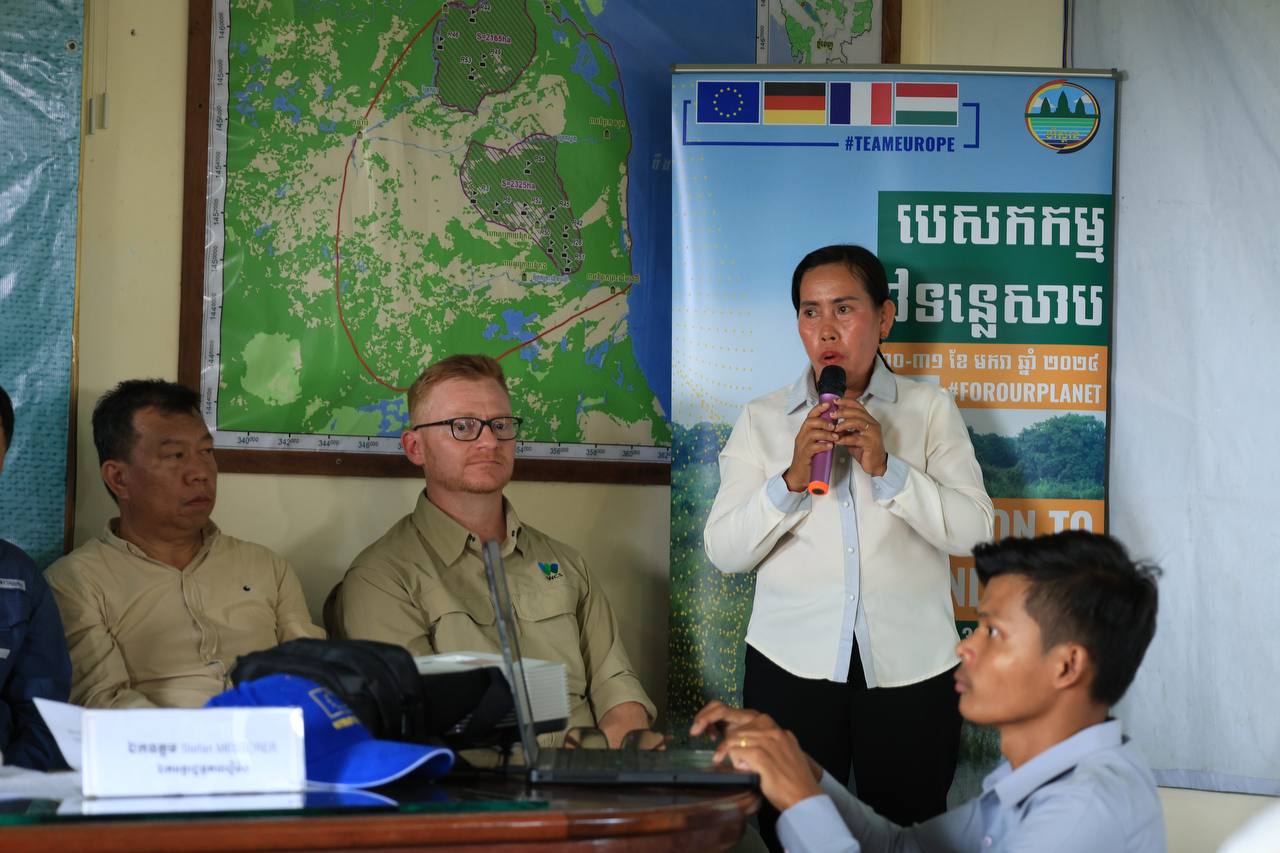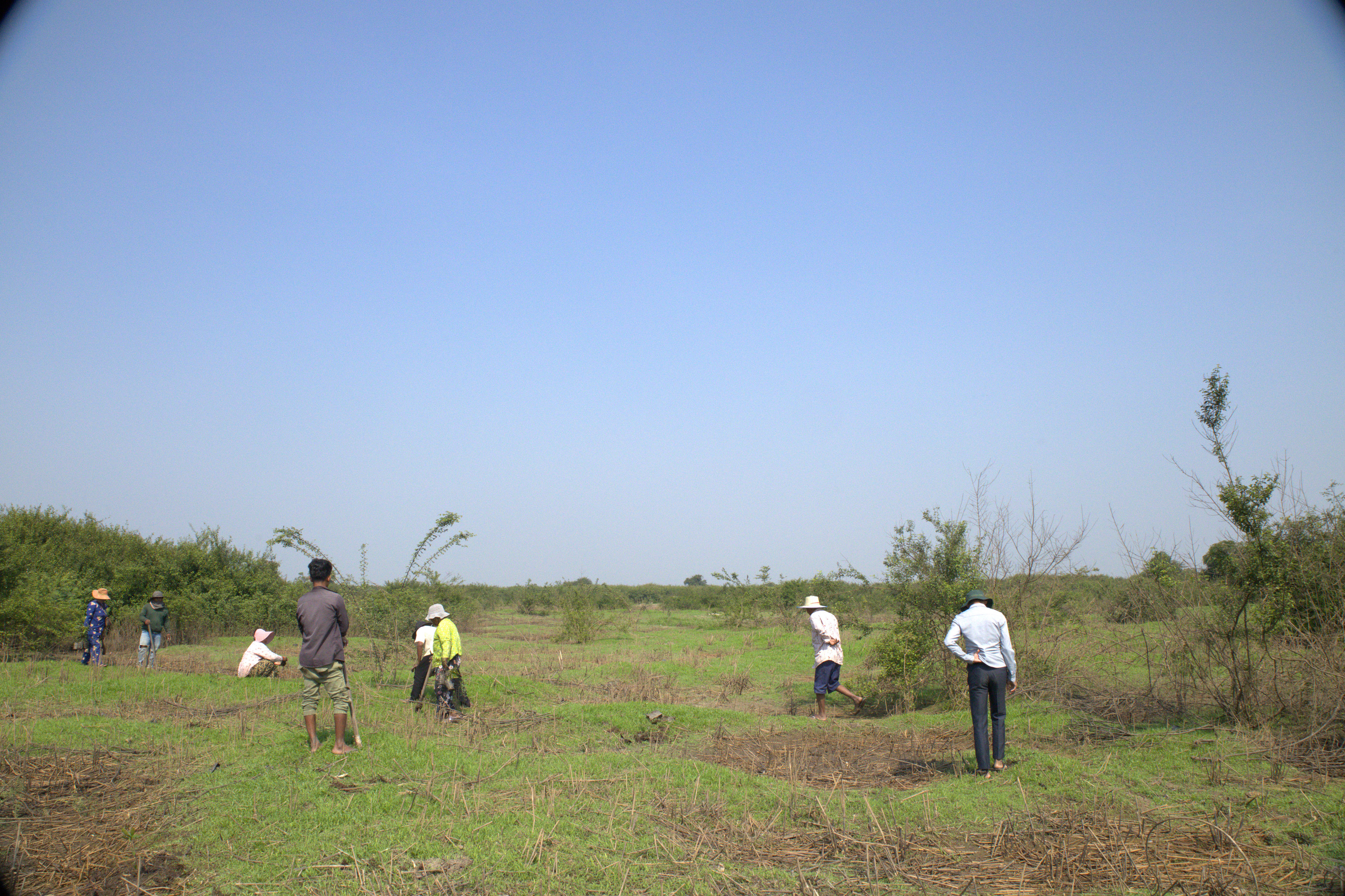People-led conservation: Lessons and experiences from Tonle Sap

Tonle Sap Lake is one of the most extensive freshwater bodies in Southeast Asia. Situated within the Tonle Sap Biosphere Reserve in Cambodia, it is part of the Prek Toal Ramsar Site. The lake is surrounded by floodplains and freshwater swamps, and rice fields and grasslands that flood seasonally. The area hosts a rich diversity of flora and fauna that are crucial to the livelihoods of local communities.
In April 2022, RECOFTC initiated the Our Tonle Sap project to support the restoration of the Tonle Sap ecosystem, which is threatened by the effects of climate change. The decreasing reliability of seasonal floods in the area and increasing forest fires in the flooded forests threaten the wetland reserve, its biodiversity and the people who depend on this ecosystem.
Together with 5,000 individuals from 13 local communities, RECOFTC is working to restore critical habitats. By working with locals, we want to ensure community-based management of the landscape to help combat forest fires, improve landscape governance, and reduce the drivers of environmental changes.

Ministry and EU delegation visit
Cambodia’s Minister of Environment, Eang Sophalleth, has acknowledged RECOFTC’s contribution to conservation and livelihood strengthening efforts in Tonle Sap. Speaking during a recent visit to the area, he noted that RECOFTC must continue this important work. He was addressing community members and other stakeholders during a two-day mission to Tonle Sap – a joint visit made with Igor Driesmans, EU Ambassador to ASEAN and Stefan Messerer, Ambassador of the Federal Republic of Germany to the Kingdom of Cambodia. Also present were the governor of Siem Reap; representatives from the Ministry of Environment and the Ministry of Agriculture, Forestry and Fisheries; and implementing partners of Our Tonle Sap project.
The high-level delegation was in Tonle Sap from 30 to 31 January 2024, visiting local community fisheries and participating in a tree-planting ceremony. Overtwo days, community members planted 2,000 seedlings in the surrounding area, and the delegation met with community members working to protect the Tonle Sap region.
Minister Sophalleth called attention to the need to urgently address wildfire in Tonle Sap, noting that tree planting is an actionable solution. He also said that an anti-plastic pollution campaign would be crucial to addressing the plastic waste problem around the Tonle Sap Lake area. RECOFT’s Our Tonle Sap project can support both activities, which the Minister noted, requires collaboration between the Ministry of Environment and development partners.
Community voices
A highlight of the visit was a presentation by Chhoun Lann from the Kompong Phluk Community Fishery. Lann presented experiences and lessons from implementing their RECOFTC-supported community-based fire management (CBFiM) plan with the delegation. She shared community members’ experience developing and implementing the plan. “Community members are able to take action on time when a fire is starting to spread. To ensure the flooded forests are protected, that Tonle Sap is protected, capacity development is essential,” she said.

So far, eight community-based organizations have completed their CBFiMs and established CBFiM and patrolling teams. They have also conducted extension interventions, supporting community-based organizations in tree planting activities in burned areas.
RECOFTC has led a series of trainings on CBFiM and firefighting interventions while also providing fire-fighting material to community members. These trainings have also included field practice. Our Tonle Sap has its own network for sharing information and practices on fire-based management in target communities.
In addition, we are supporting forest restoration efforts in forest-flooded areas along the Tonle Sap so that communities can establish nursery groups at the household level. The seedlings generated by the nursery groups will be planted in their respective communities where fire has destroyed vegetation.

RECOFTC and Our Tonle Sap
RECOFTC aims to enhance the management and restoration of critical habitats to facilitate resilience to environmental change through the implementation of community-level fire management plans and the facilitation of community-managed vegetation rehabilitation and silviculture piloted. There are currently 15 community-based organizations working with the Our Tonle Sap Project across four provinces – Pursat, Battambang, Siem Reap and Kampong Thom.
Our Tonle Sap is funded by the European Union and led by the Wildlife Conservation Society. Project partners include RECOFTC , Sansom Mlup Prey, ForumCIV , Oxfam, NatureLife Cambodia , SHE Investment and the Cambodian Disabled People's Organisation.
All partners are working closely with communities and the Ministry of Environment, Ministry of Agriculture Forestry and Fisheries, and the Forestry Administration at all levels. The project is linked to the National Forest Fire Prevention and Management Plan 2021–2025 administered by the Fisheries Administration in Cambodia.
###
RECOFTC’s work is made possible with the support of the Swiss Agency for Development and Cooperation and the Government of Sweden.

